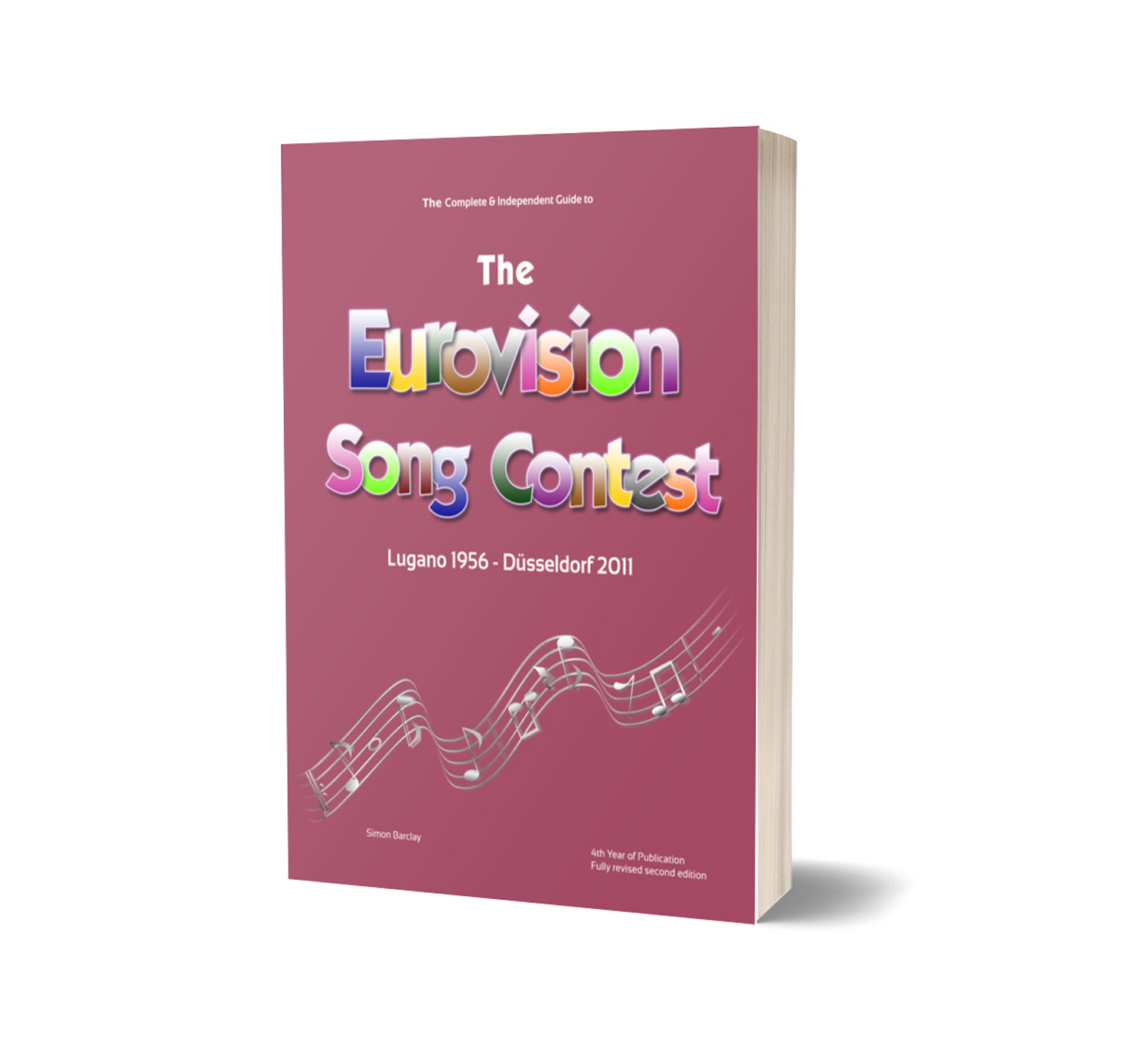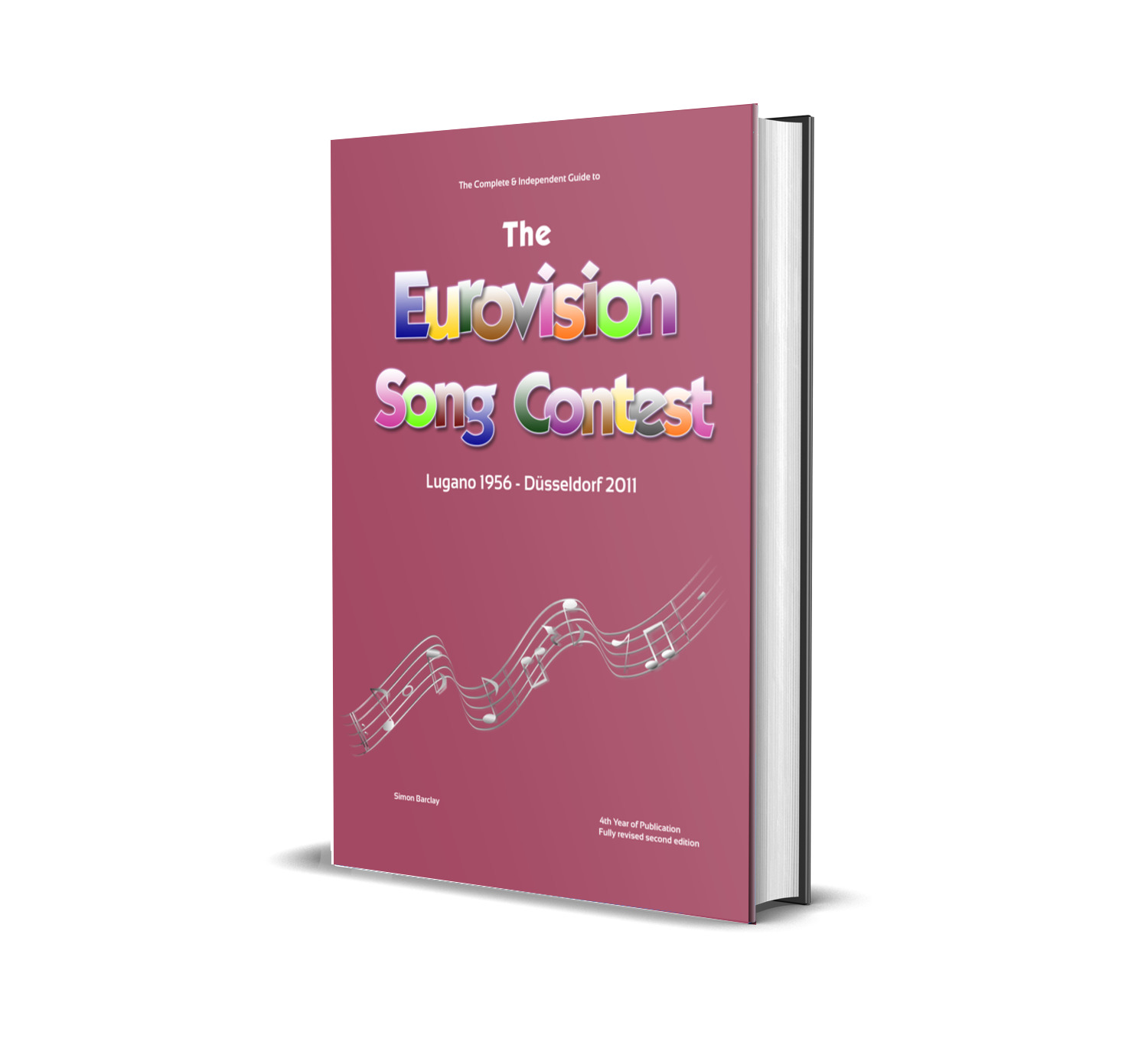Payments can be made securely by Paypal or by credit/debit card. The book will be dispatched in around 10-14 days, but please allow up to 28 days for delivery.
Note for EU customers: the price includes the EU IOSS VAT so there will be no further charges when the book arrives.
|
|
|
Introduction to the 2011 Edition
Welcome to the revised second edition of our Eurovision guide for 2011! We’ve taken the opportunity to update the first edition of the 2011 guide and to try to incorporate as many of the statistics and analysis that we have developed in later editions.
Looking back on the 2011 Contest after eleven years, it is interesting to see that this was the first time since the jury voting was reintroduced in 2009 that the overall winner did not finish first in the jury voting: Italy was the most popular with the juries but Azerbaijan proved more popular with the voting public. The 2011 Contest saw 43 competing nations this year, four more than in 2010. We welcomed back Austria (previous appearance: 2007), Hungary (2009), San Marino (2008) and for the first time since 1997, Italy. The presence of Italy turned the “Big 4” into the Big 5”, Italy being given an automatic place in Final along with the UK, Germany, Spain and France. It was a creditable performance by Italy, finishing second with only Spain performing poorly from the Big 5 this year. Germany hosted Eurovision this year for the first time since 1983 with the organisers choosing to stage the Contest in Düsseldorf’s Esprit Arena, normally home to football team Fortuna Düsseldorf. Broadcaster, NDR, chose three presenters to host both semi-finals and the final: Anke Engleke, Judith Rakers and Stefan Raab.
Several former entrants returned to the Contest in 2011, Two former winners took part, Dana International who won for Israel in 1998 and 2010 champion, Lena Meyer-Landrut. Also returning were Dino Merlin of Bosnia & Herzegovina (1999) and Moldova’s Zdob şi Zdub (2005). It was the first time since 1958 that two former winners had returned to perform in the same Contest. Another record may have been set this year, with two sets of identical twins performing. Slovakia were represented by TWiiNS, who were Daniela and Veronika Nízlová and Jedward, otherwise known as John and Edward Grimes appeared for Ireland.
So congratulations to Azerbaijan, winners for the first time on only their fourth appearance, keeping up a remarkable run of finishing in the top 10 every year so far. They become the fifth country from the former Soviet Union to win Eurovision.
Contents
Eurovision Winners since 1956
Section One: Qualifying for the 2011 Contest
Section Two: Contest Details & Votes
Contest performers and voting tables: 1950's
Contest performers and voting tables: 1960's
Contest performers and voting tables: 1970's
Contest performers and voting tables: 1980's
Contest performers and voting tables: 1990's
Contest performers and voting tables: 2000's
Contest performers and voting tables : 2010's
2011 First Semi-Final performers, jury voting, televoting and combined results
2011 Second Semi-Final performers, jury voting, televoting and combined results
2011 Final performers, jury voting, televoting and combined results
Jury/Public voting split
2011 Final: Voting Order & Spokespersons
Round by Round voting & changes to scoreboard
Country-by-Country History
Section Three: Statistics & Analysis
Internal selection or national competition
Language selection by country
Predicting the Winners, the history of votes for the best song
Predicting the Winners, who gives the most 12's and who gives nothing
Marcel Bezençon Awards
OGAE poll result
Contestants profile - singers & backing performers
Winners' Ages & Genders since 1956
Most Successful Countries League Table
Least Successful Countries League Table
Most Finishes in Top 3
Most Finishes in Bottom 3
Performance of the "Big 5"
Running Order analysis, where is best to perform?
Winners & losers position in the order of performance since 1975
Highest number of 12 points scored by one entry
Winners with the lowest number of 12 points
12 point allocation over last 10 years
Sharing the love - which countries spread their points the most
Analysis of Hosts performance
Nil points!
Highest scores in Finals
Largest and closest winning margins
Jury/Public voting split since 2009
Performance of debutant countries since 1956
Most appearances and unbroken runs
Changed your mind since the semi-final?
Weighted voting based on population size
Closest voting relationships
And the countries which don't reciprocate
Countries who have never voted for another
And pairs who never vote for each other
Most points received since 1975
Mode points analysis
East v West voting
Regional bloc voting
Each Country's Best Friends
Complete country-by-country voting analysis since 1975 - who votes for who?



No comments:
Post a Comment